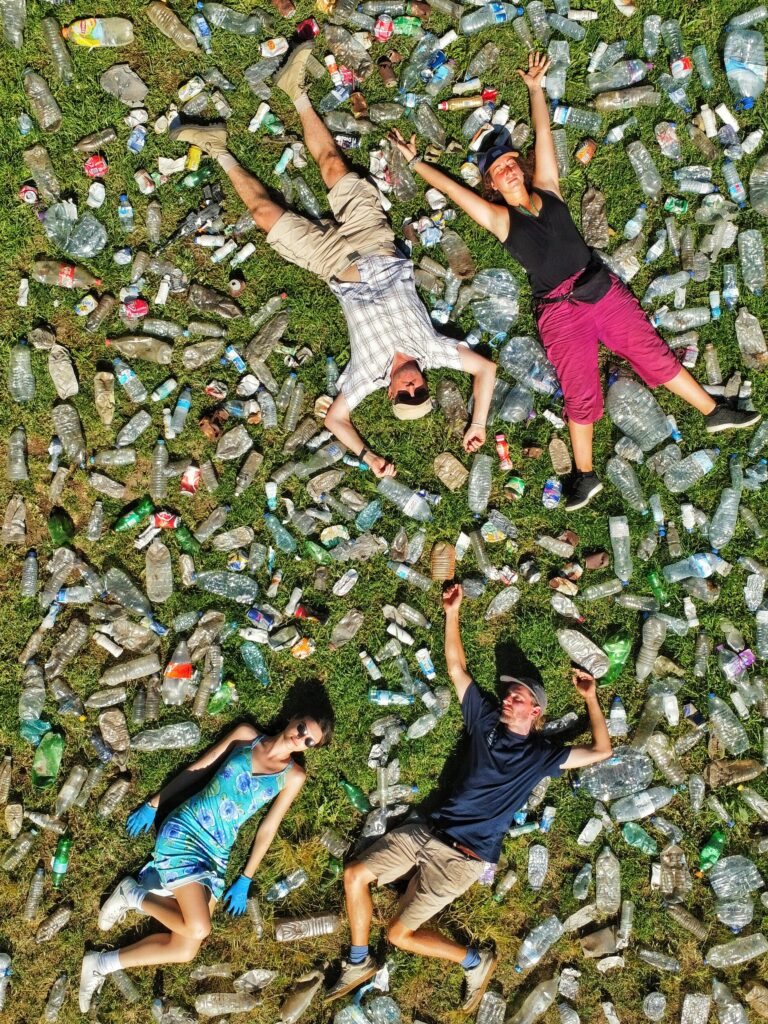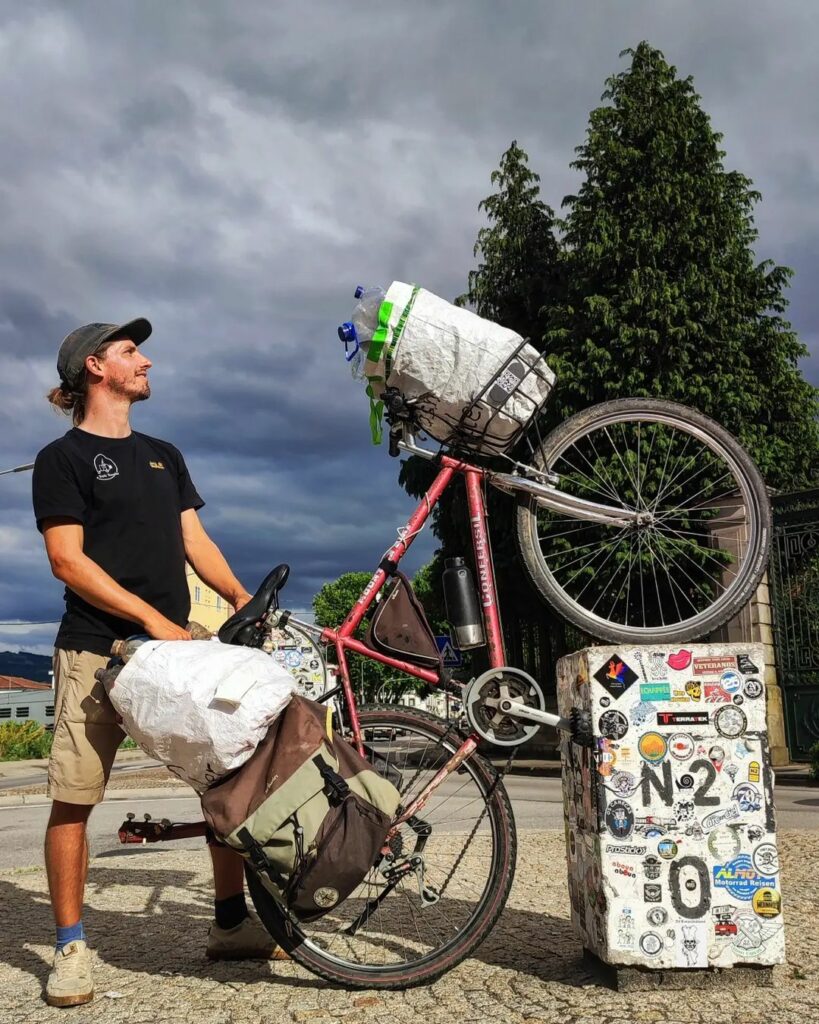The adventure is over, but not the project. Now the trip will lead to a documentary film and all the garbage collected will become pieces of art.
We could start this article with the typical introductions. Andreas Noe is a German molecular biologist and an environmental activist with a passion for Portugal. But neither Andreas wants to be known as “the German in Portugal”, nor does this project boil down to one person.
The Trash Traveler” has the face of this man with a ukelele in his hand, but has a team of nine people who have made it possible to fulfill another madness: a bicycle trip around Portugal, generating zero waste, and designed to collect as many plastic bottles as possible from the ground.
The adventure is over, but the numbers are impressive: Andreas rode a bike so often patched for 55 days without stopping. He only had a bottle of water with him that he filled along the way, and it was along this same path that he collected 4599 bottles and cans from the ground.
All the garbage collected will now be turned into art pieces that draw attention to the need to change the way we treat waste.
Along the way, more than 800 people gathered at the stopping points to collect trash or to present their sustainability projectsin a route that started in Cascais, went through the Algarve, crossed the road Nacional 2 all the way to Serra da Estrela, passed trough the north of the country and ended in Belém Tower, in Lisbon.

Nothing has been left to chance in this sustainable journey, not even means of transportation. “Rosa” (Rose) the name by which Andreas’ bicycle became known, is made from parts of 14 other bicycles. And it endured a 2370 kilometer trip without stopping (but with a few fixes, always made by the local community, along the way).
Raquel Fortuna Lima always traveled with Andreas and, in a van, ensured the logistical support and guaranteed the food for both of them – mostly vegan, with the exception of local cheeses and eggs – always without packaging involved. All purchases were made at bulk grocery stores, markets, fairs, and farms. Soon, this entire sustainable food roadmap will be available on the project’s website.
“This action is not about ‘cleaning up,’ but about raising awareness of our garbage problem and talking about solutions,” Andreas explains in a statement. Soon, the trip will lead to a documentary film and all the collected plastic bottles will be turned into art pieces in an exhibition open to the community.

Esta publicação também está disponível em:
![]() Português (Portuguese (Portugal))
Português (Portuguese (Portugal))




